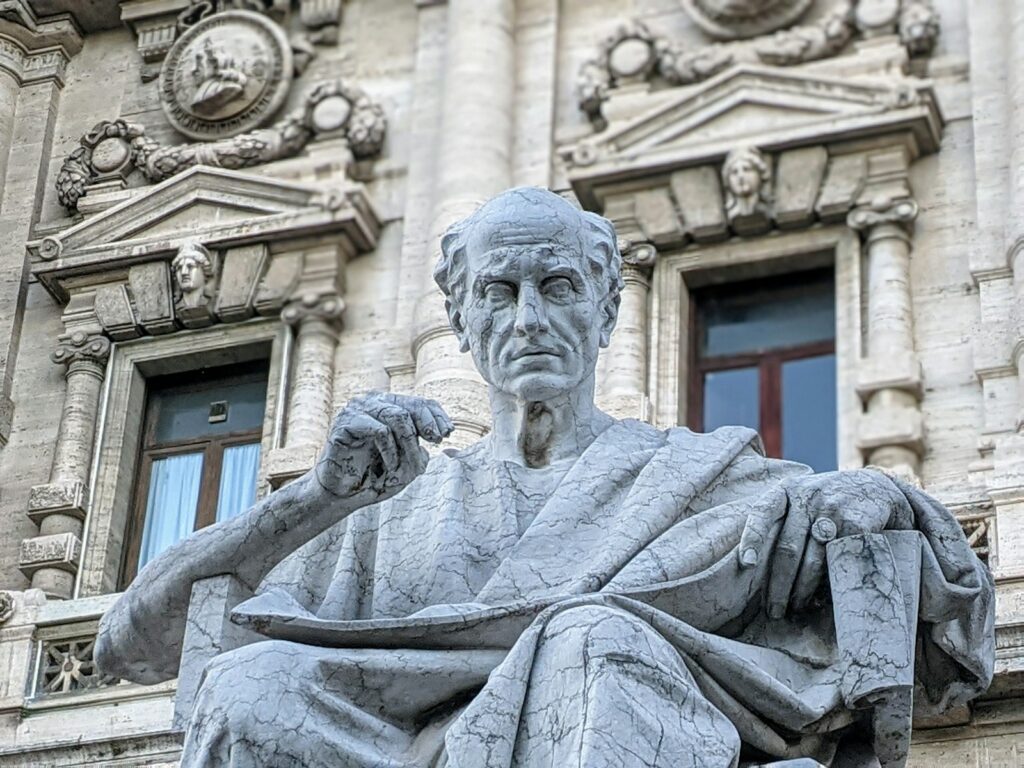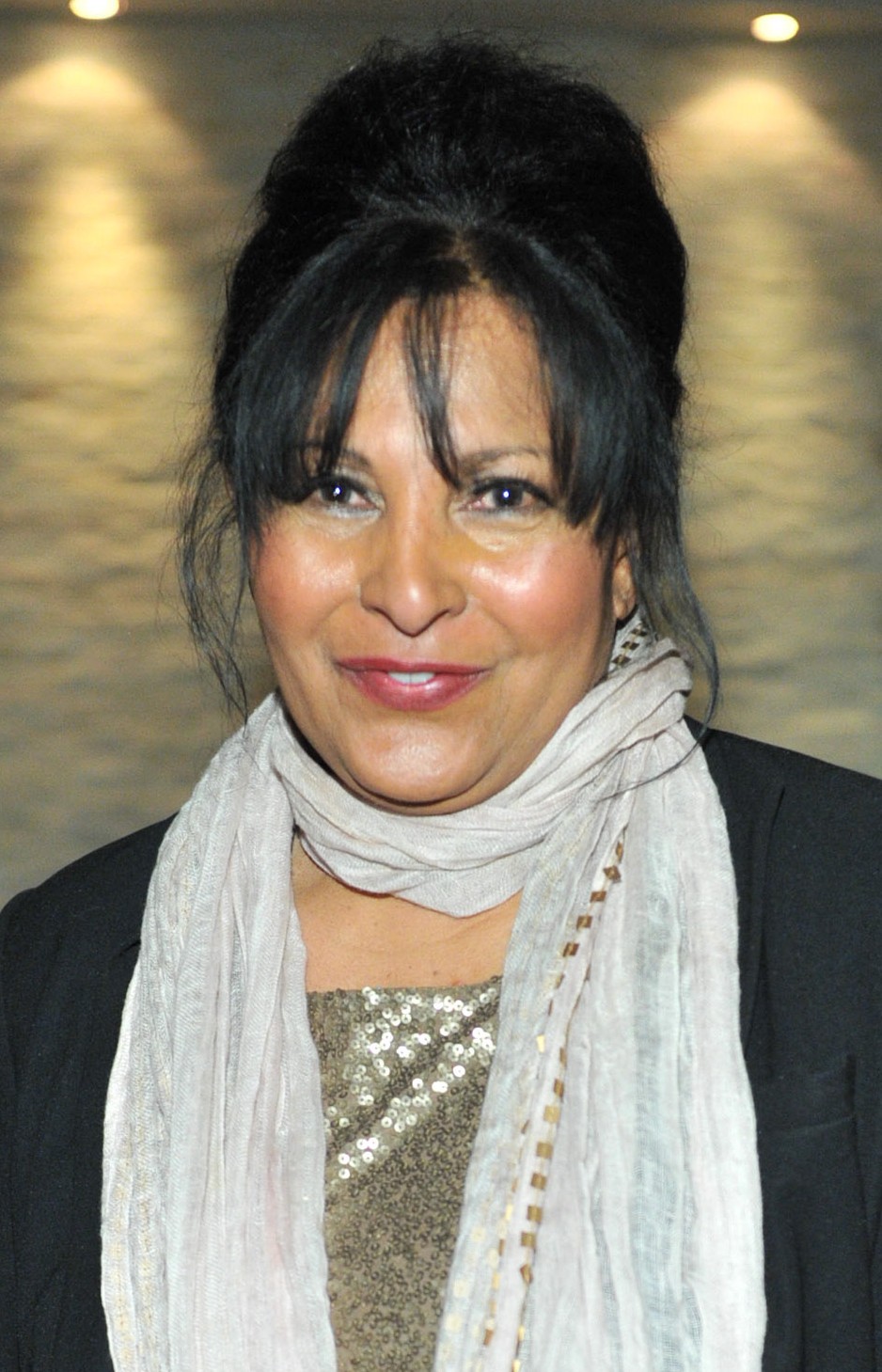The death of Rosa Roisinblit at the extraordinary age of 106 on September 6, 2025, marked the end of a remarkable life, one inextricably linked to Argentina’s tumultuous modern history. As honorary president and a founding member of the Grandmothers of Plaza de Mayo, Ms. Roisinblit embodied the unwavering spirit of a nation grappling with the profound wounds of its past. Her personal tragedy, the disappearance of her pregnant daughter and son-in-law during the brutal 1976-83 military dictatorship, transformed her into a global icon for human rights, a tireless champion for truth and justice.
Ms. Roisinblit’s journey was one of relentless dedication, a nearly half-century quest to uncover the fate of her loved ones and to help hundreds of other families torn apart by state terror. The “Dirty War” that engulfed Argentina saw an estimated 30,000 people kidnapped, tortured, and forcibly disappeared, leaving an indelible scar on the national psyche. Amidst this horrific backdrop, Ms. Roisinblit and her fellow Grandmothers stood as beacons of defiance, demanding answers and fighting to reclaim the stolen children of the disappeared. Their collective efforts not only brought comfort to grieving families but also pushed Argentina towards a reckoning with its authoritarian past.
This article delves into the extraordinary life of Rosa Roisinblit, exploring the defining moments that shaped her activism and the profound impact she had on Argentina’s healing process. We will examine her origins, the devastating events that propelled her into public life, and the foundational years of the Grandmothers of Plaza de Mayo, an organization synonymous with resilience and the pursuit of justice for a generation of “stolen grandchildren.” Her story is a powerful narrative of courage, loss, and an unyielding belief in human dignity against overwhelming odds.
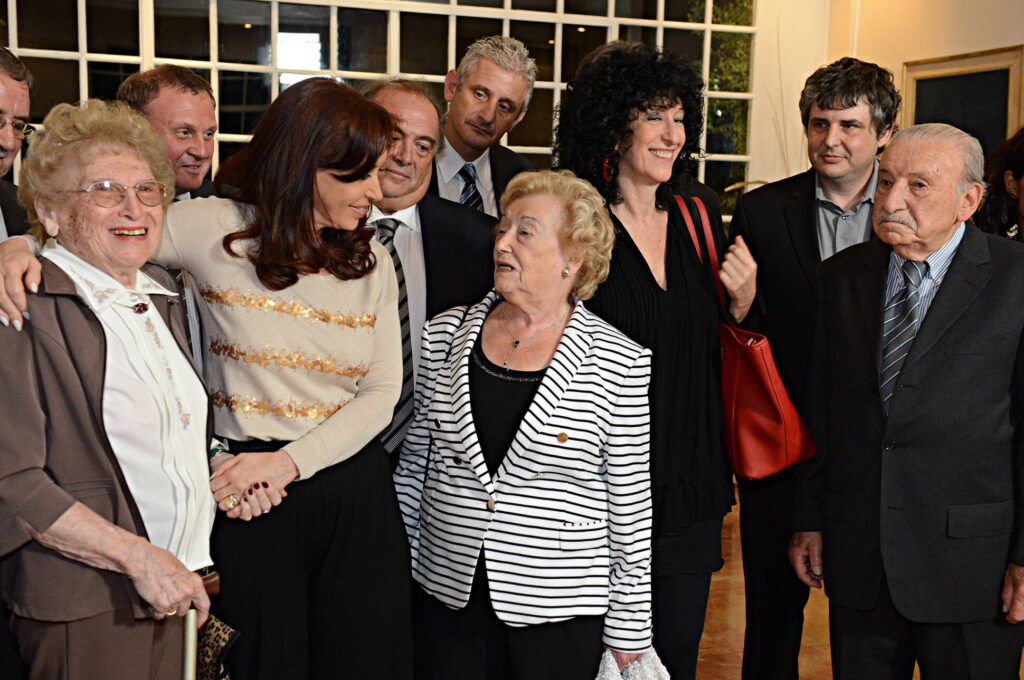
1. **Rosa Roisinblit’s Enduring Legacy and Passing at 106**Rosa Tarlovsky de Roisinblit’s passing on September 6, 2025, just 22 days after her 106th birthday, marked not merely the end of a long life but the culmination of a singular odyssey in human rights. Her death, announced by the Grandmothers of Plaza de Mayo, the organization she served with unparalleled dedication, resonated across Argentina and beyond. The collective grief was intertwined with profound gratitude for her steadfastness and the inspiration she provided to countless individuals seeking justice, solidifying her place as a national heroine.
She was remembered universally as a tireless activist, a symbol of resilience, and an unwavering advocate for truth. Human rights organizations like Comisión Provincial por la Memoria and the Center for Legal and Social Studies (CELS) expressed “deep sorrow” and praised her decades of commitment, highlighting her consistent moral compass. Former human rights secretariat Horacio Pietragalla described her as “a tireless fighter,” encapsulating the essence of her public persona and her relentless pursuit of answers for the disappeared and their families.
Her personal narrative, woven into the fabric of Argentina’s post-dictatorship identity, found poignant expression in the tributes from her family. Her granddaughter, Mariana Eva Pérez, shared a heartfelt message on X (formerly Twitter), declaring, “For me, you are eternal,” accompanied by photographs. Her grandson, Guillermo Pérez Roisinblit, whose recovery was a testament to his grandmother’s efforts, also posted, “My Grandma has passed away, and beyond the sadness I feel, it comforts me to think that after 46 years she is reunited with my mom and with her great love, my grandfather Benjamín.” These reflections underscored not only her public stature but also the immense, enduring impact of her life and loss on her family. Her funeral, held the following day at the Jewish community cemetery in La Tablada, Buenos Aires province, drew family, friends, and fellow activists.

2. **The Genesis of a Tireless Activist: Early Life and Professional Background**Born Rosa Tarlovsky on August 15, 1919, in Moisés Ville, a rural community in Argentina’s Santa Fe province, Ms. Roisinblit’s origins were rooted in a story of resilience long before her public activism began. Moisés Ville was an agricultural settlement established by Jewish immigrants who had fled pogroms in czarist Russia. Her parents, Salomón Tarlovsky, a farmer and rancher who faced bankruptcy during the Great Depression, and Ana (Milstein) Tarlovsky, instilled in her a strong sense of perseverance and a deep understanding of hardship, qualities that would define her later years.
At the tender age of 15, Rosa embarked on a significant journey, leaving her rural home to pursue an education in the city of Rosario, a step of considerable independence and ambition for a young woman of her generation. There, she chose to study obstetrics, a profession centered on nurturing new life and supporting families. She graduated from the National University of Litoral and worked diligently at the Faculty of Medicine of that city until 1944, building a career dedicated to care and profound responsibility.
Her professional journey then brought her to Buenos Aires in 1949, where she established her adult life. Two years later, in 1951, she married Benjamín Roisinblit, an accountant. It was within this period that her only daughter, Patricia, was born in 1952. This period of stability and domestic happiness, where she nurtured her family and her professional life, provided a stark contrast to the profound turmoil that would soon engulf her personal world and propel her into an unexpected, monumental struggle for human rights. Her early life, marked by immigrant determination and a commitment to fostering new life, laid an unseen yet crucial foundation for the extraordinary public fight she would eventually undertake.
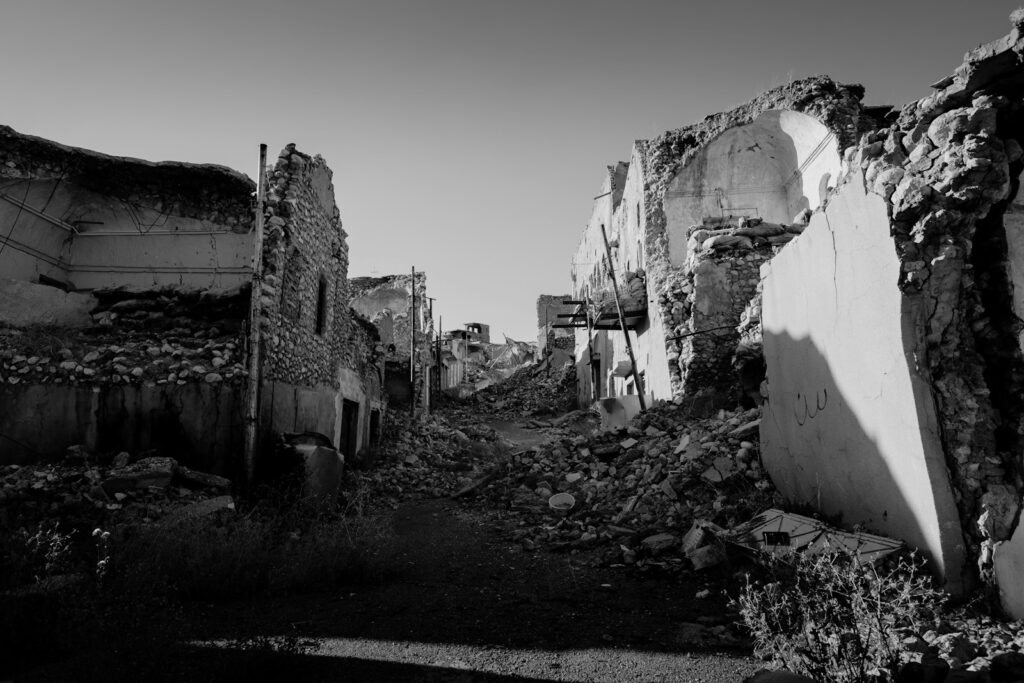
3. **Argentina’s Darkest Chapter: The “Dirty War” and State-Sponsored Terror**The relative serenity of Rosa Roisinblit’s life was irrevocably shattered by the political upheaval that seized Argentina with the military coup of March 1976. This event ushered in a brutal right-wing dictatorship that initiated what became known as the “Dirty War,” a period from 1976 to 1983. This era was characterized by systematic state terror, relentlessly waged against perceived political opponents, activists, and anyone deemed a threat to the regime’s authoritarian control. The junta’s methods were chillingly efficient and inhumane, designed to eradicate dissent and instill a pervasive climate of fear throughout Argentine society.
During these dark and repressive years, human rights groups have estimated that approximately 30,000 Argentines were kidnapped, tortured, and forcibly “disappeared.” These victims were typically seized by security personnel in clandestine raids, often in the dead of night, and subsequently held in secret detention and torture centers. Notorious facilities such as the Naval Mechanics School (ESMA) became symbols of the regime’s brutality, where prisoners endured unimaginable suffering. Many of these disappeared individuals were never seen again, their fates shrouded in state secrecy, leaving their families in a perpetual state of agonizing uncertainty and unresolved grief.
Among the most heinous aspects of this state-sponsored repression was the systematic appropriation of babies born to female detainees in captivity. An estimated 500 such infants were cruelly stolen from their mothers, often immediately after birth in these clandestine centers. These newborns were then given to childless military couples or regime sympathizers, raised under false identities and deliberately severed from their biological heritage. This systematic child theft represented a profound violation of human rights, severing familial ties and erasing personal histories, thereby creating a generation of “stolen grandchildren” whose identities and origins were intentionally obscured by the state.

4. **A Mother’s Agony: The Disappearance of Patricia and José**The “Dirty War” reached Rosa Roisinblit’s doorstep with devastating and personal force on October 6, 1978. Her only daughter, Patricia Julia Roisinblit, then 25 years old and eight months pregnant, was kidnapped along with her husband, José Manuel Pérez Rojo, by a task force of the Argentine Air Force. Patricia, a medical student, and José, who owned and operated a toy store, were both members of the Montoneros, a left-wing guerrilla group. Although reports suggested they had reportedly left that life behind by the time of their abduction, their past affiliations made them targets of the ruthless regime.
The abduction was a sudden and brutal rupture in Rosa’s life, instantly plunging her into a nightmare that would define her existence for the next four decades. Initially, their 15-month-old daughter, Mariana, was also seized along with her parents. However, Mariana was quickly returned to the family by the military regime’s agents. This meant that Rosa was left to raise her young granddaughter amidst the harrowing, inexplicable absence of her daughter and son-in-law, a responsibility compounded by profound grief and unanswered questions.
The immediate aftermath was characterized by desperate, yet ultimately futile, efforts to locate Patricia. Ignoring explicit police warnings against searching for her daughter, Ms. Roisinblit resolutely filed a habeas corpus petition; it was summarily rejected by the authorities. As Patricia’s due date rapidly approached, Rosa tirelessly scoured hospitals and orphanages, clinging to any shred of hope for her pregnant daughter and unborn grandchild. Her desperate search was met with official obfuscation and the chilling words of a judge, friendly to the junta, who callously informed her that he “would never hand over a child to the likes of us.” This period of agonizing uncertainty cemented her unyielding resolve to uncover the truth at any cost.
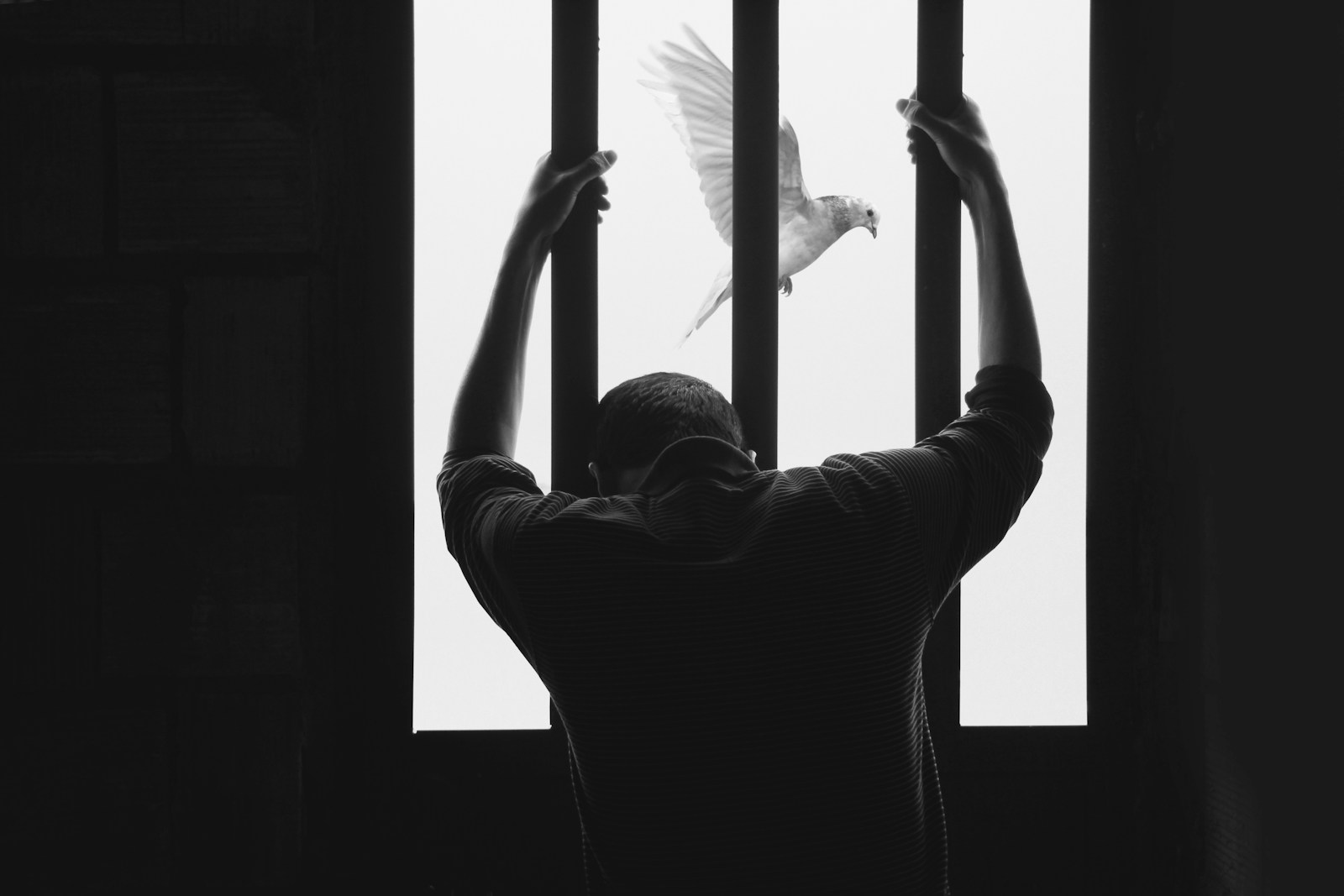
5. **The Stolen Generation: Guillermo’s Birth in Captivity and Appropriation**The tragic fate of Patricia Roisinblit and José Manuel Pérez Rojo, culminating in the birth of their son, Guillermo, in captivity, stands as a stark and horrifying illustration of the atrocities committed during Argentina’s “Dirty War.” Through painstaking efforts and later testimony, Rosa Roisinblit eventually uncovered the unspeakable truth about her daughter’s final days. Patricia had been taken to a “maternity ward” at the Naval Mechanics School (ESMA), a notorious detention and torture center near Buenos Aires. It was there, amidst the grim confines of state-sponsored terror, that Patricia was forced to give birth in November 1978.
Immediately after his birth, the infant son, Rodolfo Fernando, was cruelly and instantly separated from his mother. Patricia, along with José, was tragically never seen again; their bodies were never found, leaving a profound void of immense suffering and unresolved questions for Rosa and her family. The newborn was then subjected to a fate shared by hundreds of other children born in clandestine torture centers: he was illegally given to a civilian Air Force intelligence officer, Francisco Gómez, and his wife, Teodora Jofre, to be raised as their own. Under false papers, his true identity was erased, and he was given the name Guillermo Francisco Gómez.
This abhorrent act of appropriation was not an isolated incident but a systematic policy designed to eliminate the lineage of perceived dissidents and to indoctrinate a new generation with the values of the military regime. The stolen babies were routinely handed to childless military couples, creating a clandestine network of deception that aimed to sever all ties to their biological families and personal histories. For Rosa, this meant not only the unimaginable loss of her daughter and son-in-law but also the profound agony of knowing her grandson was alive somewhere, an unknowable and unreachable presence, living a life built entirely on a state-sanctioned lie.

6. **The Birth of a Movement: Grandmothers of Plaza de Mayo**Faced with such unspeakable loss and the stonewalling of authorities, Rosa Roisinblit channeled her profound grief and desperate hope into determined action. Soon after her daughter’s abduction, she discovered a fledgling group of mothers who, like her, were united by the agonizing common thread of desperately searching for their disappeared children. These courageous women had begun gathering weekly in the Plaza de Mayo, a central square in Buenos Aires, where they donned symbolic white head scarves to protest the regime’s atrocities, often at great personal risk and in defiance of official threats.
This burgeoning movement, born of collective anguish and a shared demand for answers, soon gave rise to a crucial offshoot specifically focused on the unique plight of children: the Grandmothers of Plaza de Mayo. Ms. Roisinblit, widowed and a retired obstetrician, wasted no time in joining this new organization, driven by an urgent, almost palpable need to “fight,” to “do something,” to act with immediate purpose, as she was quoted saying in Haley Cohen Gilliland’s insightful book, “A Flower Traveled in My Blood.” Her immediate and unwavering commitment transformed her deeply personal tragedy into a collective struggle, as she quickly realized that her individual quest for her grandson was inextricably linked to a much larger, systemic injustice affecting countless families.
The Grandmothers’ mission was both clear and audacious: to locate and identify the children stolen during the dictatorship, reunite them with their biological families, and, crucially, to bring the perpetrators of these heinous crimes to justice. Their work was arduous, demanding immense courage, meticulous persistence, and unwavering solidarity in a climate of pervasive fear and state repression. Through organized rallies, international public awareness campaigns, and painstaking investigative work, they laid the foundational groundwork for decades of dedicated activism, becoming a vital, indomitable force in Argentina’s human rights movement and offering a crucial glimmer of hope to families ravaged by the “Dirty War.” Her service as treasurer for six years, and subsequently as vice president from 1989 to 2022, vividly highlights her enduring dedication to this vital cause.
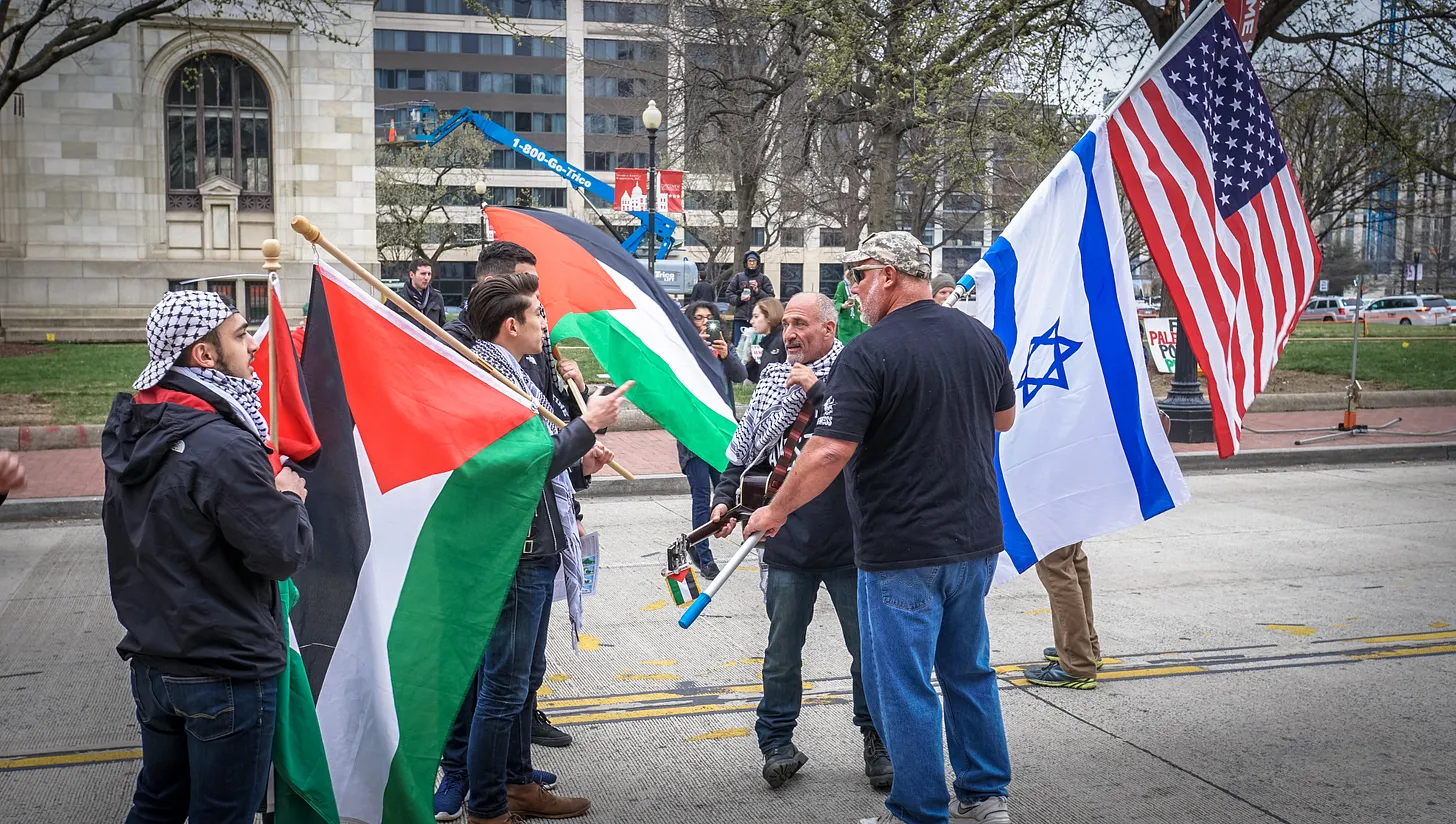
7. **A Decades-Long Quest: Unwavering Advocacy and Search**Having joined the Grandmothers of Plaza de Mayo, Rosa Roisinblit dedicated the next chapter of her life to a relentless, decades-long search for her grandson and hundreds of other children stolen during the dictatorship. Her commitment was not merely symbolic; for 33 years, she served as vice president of the grandmothers’ group, a tenure marked by tireless effort and strategic advocacy. In this role, she became an instrumental figure in guiding the organization’s persistent efforts to uncover the truth and ensure justice, even as the political landscape shifted.
The Grandmothers employed a multi-faceted approach, one that required immense courage in a country still grappling with the shadow of its military past. They meticulously followed up on anonymous tips, often rumors regarding government officials’ wives who had suddenly appeared with newborns without having been pregnant themselves. These leads, however speculative, provided crucial avenues for investigation, requiring careful verification and discreet inquiry in a climate where information was deliberately obscured.
Beyond domestic efforts, Ms. Roisinblit and her colleagues rallied international support for their cause, elevating the plight of the “stolen grandchildren” to a global stage. They also keenly kept abreast of the latest genetic testing methods, understanding that scientific advancements could offer an irrefutable path to identifying stolen kin. This embrace of forensic science, particularly DNA analysis, would prove to be a cornerstone of their success, offering concrete proof in a sea of state-sponsored deception.
“This wound never heals,” Ms. Roisinblit once told AFP, reflecting on the enduring pain of her loss. Yet, her personal suffering fueled an unyielding resolve. “But to say I’m stopping? No, I’ll never stop.” This steadfast determination embodied the spirit of the Grandmothers, transforming individual grief into a powerful collective force that defied state terror and societal silence, persistently demanding accountability for one of the dictatorship’s most heinous crimes.
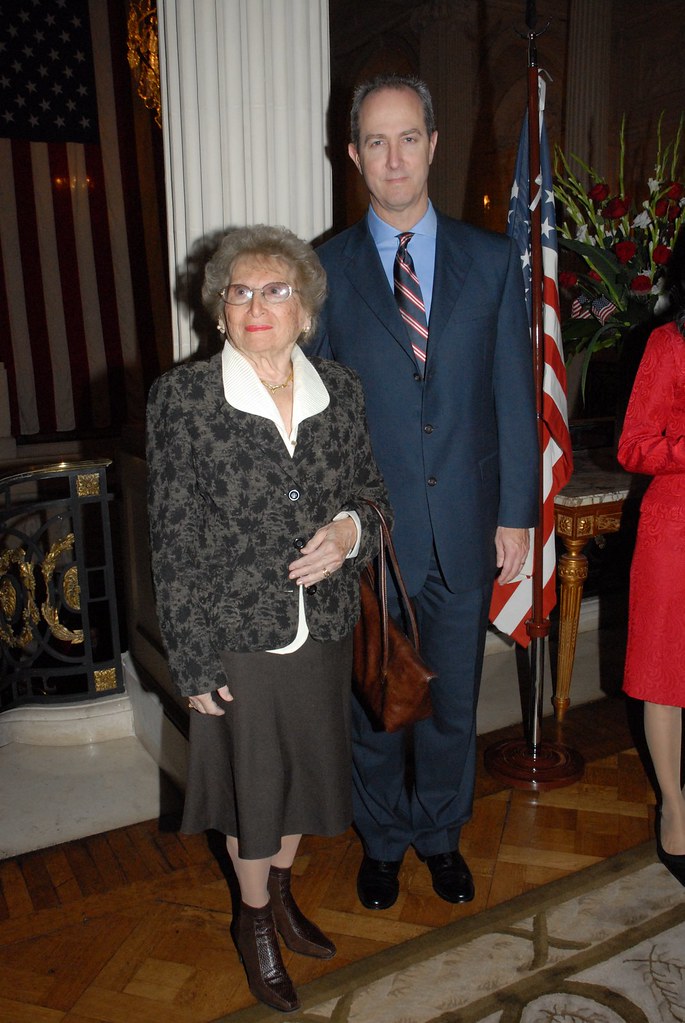
8. **The Breakthrough: Unraveling Guillermo’s Stolen Identity**The arduous, nearly half-century search for Guillermo Pérez Roisinblit finally began to yield results in the year 2000. It was a moment of profound significance, catalyzed by an anonymous tip received by the Grandmothers of Plaza de Mayo. This crucial piece of information suggested that a military couple might have appropriated the missing baby, offering a glimmer of hope after decades of agonizing uncertainty and countless dead ends for Rosa Roisinblit.
Acting on this lead, Ms. Roisinblit’s granddaughter, Mariana, who was Patricia and José’s 15-month-old daughter and had been returned to Rosa, took a courageous step. Now an adult, Mariana, a writer and academic, approached Guillermo at his place of work—a fast-food establishment in Buenos Aires. It was a delicate and emotionally charged encounter, initiating a conversation that would forever alter their lives and begin to mend a generational wound.
Guillermo, who had been raised under the false identity of Guillermo Francisco Gómez, himself harbored lingering doubts about his own origins. The environment in which he grew up, which he later described as an abusive home environment, likely contributed to his internal questioning. The Grandmothers’ careful approach and Mariana’s direct yet sensitive outreach provided him with an opportunity to explore these deeply personal uncertainties, to seek answers about a past that had been systematically hidden from him.
This confluence of an anonymous report, Mariana’s initiative, and Guillermo’s receptiveness created the vital opening needed to pierce through the years of deception. It set the stage for the scientific confirmation that would not only reunite a grandmother with her long-lost grandson but also provide irrefutable evidence of the dictatorship’s crimes, validating the Grandmothers’ unwavering insistence on the truth.
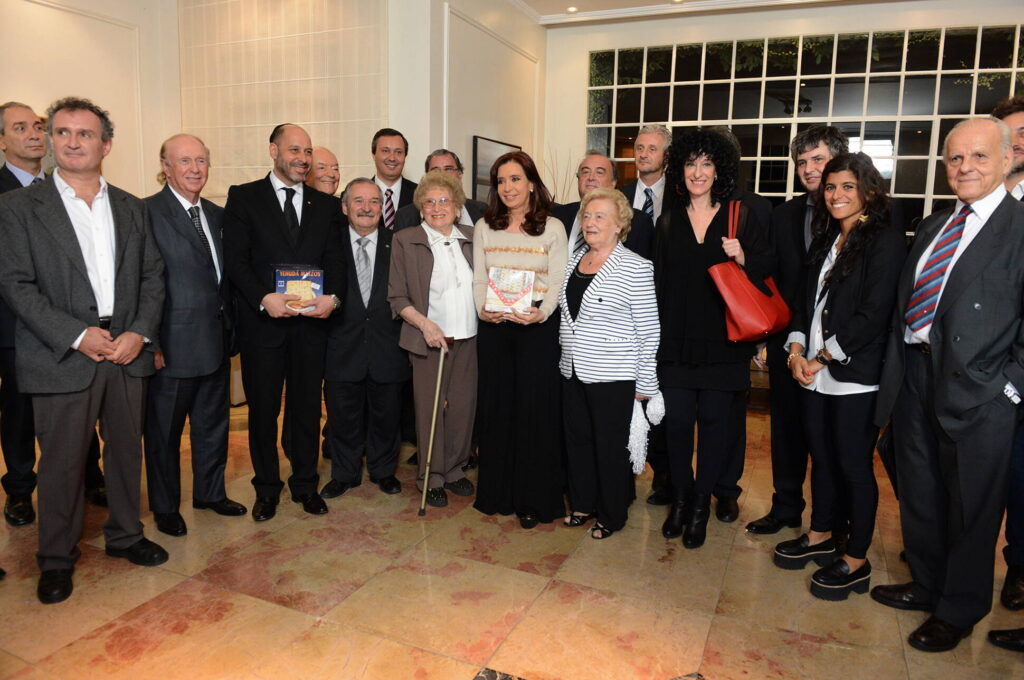
9. **The Power of Science: DNA Confirmation and Emotional Reunion**Following Mariana’s courageous outreach and Guillermo’s openness to confronting his past, the next critical step involved scientific verification. The Grandmothers of Plaza de Mayo, pioneers in using genetic evidence to prove identity, arranged for DNA testing. These tests were conducted under the guidance of renowned geneticist Mary-Claire King, whose expertise provided an unimpeachable layer of scientific rigor to the process. The results were not merely confirmatory; they were transformative.
The DNA tests definitively established that Guillermo was indeed Rodolfo Fernando, the son of Patricia Julia Roisinblit and José Manuel Pérez Rojo, and the grandson of Rosa Roisinblit. This scientific certainty provided the crucial proof that decades of state-sponsored deception had tried to erase. It was a triumph of truth over calculated falsehoods, offering undeniable evidence of the systematic child theft perpetrated by the military regime and validating the Grandmothers’ tireless work.
For Rosa Roisinblit, the confirmation of Guillermo’s identity in 2000 represented the culmination of a 22-year-long search, a profound moment of both profound relief and bittersweet joy. While the fates of Patricia and José remained unknown, the recovery of her grandson brought a tangible resolution to at least one aspect of her enduring pain. The reunion was a powerful testament to her unwavering persistence and the Grandmothers’ innovative methods.
Guillermo Pérez Roisinblit, at 38, formally changed his surname from Gómez, reclaiming his biological heritage. This act was not merely administrative; it was a deeply personal affirmation of his true identity, a symbolic shedding of the false narrative imposed upon him and an embrace of the family from whom he had been so cruelly separated. The reunion underscored the Grandmothers’ mission: not just to find the children, but to help them reclaim their stolen identities and their rightful place within their biological families, initiating a difficult but vital process of healing and reconnection.

10. **The Pursuit of Justice: Lifting Amnesty and Courtroom Battles**The tireless efforts of the Grandmothers of Plaza de Mayo, alongside other human rights organizations, created an undeniable moral imperative for justice in Argentina. A significant turning point arrived in 2005, when Argentina’s Supreme Court courageously lifted a blanket amnesty that had shielded junta-era military officials from prosecution. This landmark decision reopened the possibility of holding perpetrators accountable for the atrocities committed during the “Dirty War,” breathing new life into the Grandmothers’ long fight.
This legal shift was bolstered by a critical political alliance forged with the left-leaning President Néstor Kirchner, who sought a comprehensive reckoning on human rights cases stemming from the dictatorship. His administration actively supported the Grandmothers and Mothers groups, providing a governmental framework that facilitated the prosecution of those responsible for disappearances, torture, and child theft. This partnership marked a crucial step in confronting Argentina’s authoritarian past and moving toward restorative justice.
With the legal barriers removed, the path was cleared for individuals like Rosa Roisinblit to finally seek redress in the courts. This led to the prosecution of Francisco Gómez, the civilian Air Force intelligence officer who had appropriated Guillermo, along with other high-ranking military figures. The cases sought to expose the intricate network of state-sponsored terror and the personal complicity of those who participated in it, particularly the abhorrent practice of stealing babies born in captivity.
The ensuing trials represented a profound societal reckoning, offering a measure of justice that had been denied for decades. They not only aimed to punish the guilty but also to officially record the truth of what had occurred, providing a factual counter-narrative to the state-sanctioned lies of the dictatorship. These legal battles, hard-won after years of struggle, became integral to Argentina’s ongoing process of healing and national memory.

11. **Confronting the Perpetrators: Rosa Roisinblit in Court**At the extraordinary age of 96, in the spring of 2016, Rosa Roisinblit experienced a moment that encapsulated her lifelong quest for justice: she sat in a courtroom, directly facing the men charged with the abduction and torture of her daughter and son-in-law. The defendants included Francisco Gómez, who had raised her grandson; Luis Trillo, a regional intelligence chief in the Air Force; and Omar Graffigna, a former Air Force commander and one of the last surviving members of the dictatorship’s inner circle. It was a confrontation borne of decades of unwavering determination.
During her poignant testimony, the judge asked Ms. Roisinblit if she was prepared to tell the truth. Her response, as recounted by Haley Cohen Gilliland, was resolute and unwavering: “I never stop telling the truth,” she declared. “It’s a trait of mine.” This simple statement underscored her integrity and the moral clarity that had guided her through years of obfuscation and denial, firmly rejecting the regime’s attempts to silence and distort.
The judge then inquired about the number of children she had. Ms. Roisinblit hesitated, the profound weight of her loss evident in her voice. “I had a daughter. But I don’t anymore,” she answered. This raw, honest exchange humanized the immense scale of the dictatorship’s crimes, bringing into stark relief the personal agony of a mother whose child had been violently disappeared by the state, her body never recovered.
At the conclusion of her testimony, Ms. Roisinblit articulated the enduring, collective demand for answers that she and the Grandmothers represented. “I need the Argentine state to tell me who took them,” she stated. “Why it took them. Who gave them a trial. Who convicted them. Where are they? I want to find the remains of my children, because then I’d have a place to lay a flower.” Her words resonated deeply, expressing the unresolved grief that still gripped countless families. The court ultimately delivered a verdict of guilt, sentencing Mr. Graffigna and Mr. Trillo to 25 years, and Mr. Gómez to 12 years, for their roles in the abduction and torture of Patricia and José.

12. **An Enduring Legacy: A Symbol of Resilience and Hope**Rosa Roisinblit’s passing at 106 marked not an end to her fight, but a powerful affirmation of an enduring legacy. Her life, steeped in personal tragedy and transformed by an unyielding commitment to justice, made her a national heroine and a global symbol of human rights. Her impact extended far beyond the reunion with her own grandson; she became a beacon of resilience for countless families torn apart by state terror, demonstrating that even against overwhelming odds, truth and dignity can prevail.
Her work with the Grandmothers of Plaza de Mayo cemented their position as an indomitable force in Argentina’s human rights movement. Through their efforts, an estimated 140 “stolen grandchildren” have been reunited with their biological families, each reunion a testament to decades of meticulous investigation, international advocacy, and profound courage. These individuals, now reclaiming their rightful identities, carry forward a narrative of remembrance and resilience.
Yet, Ms. Roisinblit’s journey also highlighted the unfinished nature of justice. Even after her grandson’s recovery and the conviction of his abductors, the wound of losing her daughter and son-in-law never fully healed. “We fight but the heroes are our children who rose up against a fierce dictatorship and gave their lives for a better country,” she once said, paying homage to the disappeared and acknowledging the profound sacrifices made in the pursuit of a better Argentina.
Her spirit lives on, not only in the collective memory of a nation confronting its past but also through her direct descendants. Her grandson, Guillermo Pérez Roisinblit, is now a human rights lawyer working with the Grandmothers of Plaza de Mayo, actively continuing his grandmother’s vital legacy. Her granddaughter, Mariana Eva Pérez, a writer and academic, also carries forward the family’s commitment to truth and memory, ensuring that the stories of the disappeared are never forgotten.
Read more about: Halle Berry at 58: Decoding the Bold Career Moves and Enduring Influence of a Hollywood Icon
Rosa Roisinblit left this world having witnessed significant triumphs in her fight, but also with the understanding that the work continues. The Grandmothers estimate that approximately 300 “stolen grandchildren” still remain to be found, a stark reminder of the long shadow cast by the “Dirty War.” Her life story remains a profound inspiration, a testament to the power of a single individual to ignite change, demand accountability, and ensure that the pursuit of human dignity perseveres, even in the face of unimaginable loss. Her journey underscores the enduring belief that every life, every story, and every identity matters, and that the unwavering quest for truth is an essential cornerstone of a just society.


